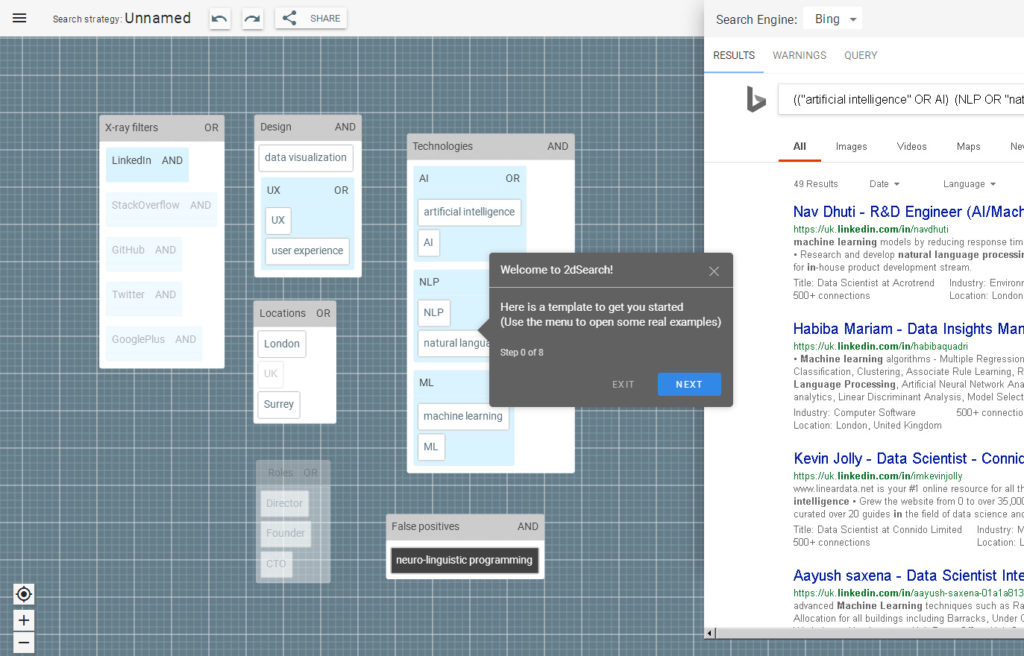


What you are actually telling BrandMentions through this expression is that you want to get all the mentions containing the exact name Rafael Nadal plus any of the following tennis tournaments: Australian Open, Roland Garros, US Open or Wimbledon, but only if those mentions do not contain any reference to Roger Federer.

Let's take for example the Boolean query from the screenshot below. We know that if you're not used to Boolean Search, at first glance, a Boolean expression might seem overwhelming yet, things are simpler than they seem. How Does Boolean Search Look Like in BrandMentions We know that each user has different needs and that's why in BrandMentions you can use either of the keyword tracking modes: the default or the more advanced one - Boolean Query Tracking. Similar to an “Advanced Search” function, Boolean search operators allow you to include, exclude and tag specific keywords to carefully refine your search results. In social listening, Boolean query tracking helps you quickly and effectively identify the exact mentions you are interested in. Yet, Google search results page is not the only area where Boolean search is very helpful. Since its invention, it has significantly influenced the evolution of the search, especially of the biggest search engine, Google. Why You Should Use Boolean Search in BrandMentionsīoolean search is a query methodology that is used to broaden, narrow or refine search results.Īnd if you're wondering where is the fancy name coming from, you need to know that the Boolean search was invented by George Boole, an English mathematician and author of The Mathematical Analysis of Logic (1847). And now, you can use it each time you need it in the BrandMentions app. Boolean searching is used to help you get search results faster and with more precision. So, if you use any source of human capital data to find and recruit people (e.g., your ATS/CRM, resume databases, LinkedIn, Google, Facebook, Github, etc.) and you really want to understand how to best approach your talent sourcing efforts, I recommend watching this video when you have the time.B oolean search is a manual type of search that allows you to combine keywords with operators so you can better define your search. Now, while that is puny in comparison to the nearly 1B views Adele’s Hello video has racked up, I was surprised to see so many views given the niche content.Īlthough the source of human capital data that I focus on in the video happens to be LinkedIn, practically everything I talk about is equally applicable to any source you can use to find people to recruit. The same is true of the thought processes you apply before and during your search efforts.Ī little over a year ago, I presented for the 3rd time at LinkedIn’s Talent Connect event in London, and I spoke about how to leverage LinkedIn’s massive stockpile of human capital data for sourcing and recruiting. LinkedIn recorded the session and uploaded the video to YouTube, and I recently noticed the video had over 65,000 views. Your level of understanding of and appreciation for the unique challenges posed by human capital data in any form (social media profiles, resumes, etc.) directly correlates to your ability to extract value from any data source. That’s right – the most powerful thing you can incorporate into your people search efforts isn’t Boolean logic, a search “hack,” Chrome extension, search aggregator, semantic search solution or anything you can buy – it’s your brain. While many people are hungry for specific Boolean search strings to copy and paste and for search tools that make searching for people “easier” and even “do the thinking for you,” there simply is nothing that can come remotely close to what you can do when you think properly and ask the right questions.


 0 kommentar(er)
0 kommentar(er)
